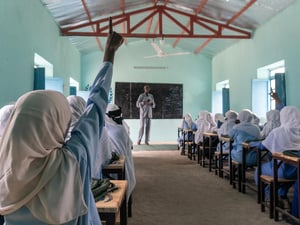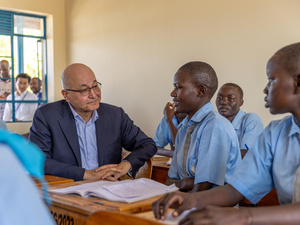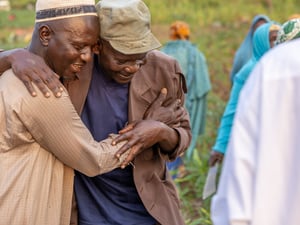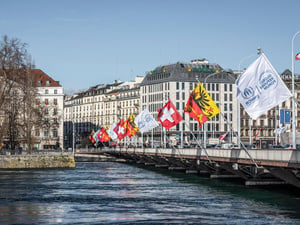IOM, UNHCR call for stronger response in the Americas as half a million people cross the Darien jungle
IOM, UNHCR call for stronger response in the Americas as half a million people cross the Darien jungle

Families preparing to cross the Darien jungle camp on the beach in the Colombian city of Necoclí.
GENEVA – As the number of refugees and migrants crossing the Darien jungle this year reaches an unprecedented 500,000 – more than double the crossings last year – the International Organization for Migration (IOM) and the UN Refugee Agency (UNHCR) warned today of a deepening humanitarian emergency in the Americas and called for a comprehensive regional approach founded on cooperation and solidarity.
The epicentre of the crisis, the Darien region of Panama, shows the scale and complexity of the movements of people across the continent.
Refugees and migrants continue to make the dangerous journey across this roadless stretch of land separating South and Central America in search of safety and a better life. Most come from Venezuela, Haiti and Ecuador, as well as from other countries in South America and the Caribbean. Others come from further afield, including Sub-Saharan Africa, Asia and the Middle East. People crossing the Darien and other borders irregularly are exposed to grave dangers, such as natural hazards, sexual and gender-based violence, robbery, human trafficking, extortion and kidnapping.
“Host countries require greater support from the international community to strengthen national services and provide integration opportunities for people to find stability and avoid embarking on dangerous journeys,” said Amy Pope, IOM’s Director General. “Migrants and refugees are powerful drivers for development and for stronger and more diverse communities and societies.”
“The challenges that the unprecedented population movements in the Americas pose are formidable,” said UN High Commissioner for Refugees, Filippo Grandi. “No country on its own is equipped to address them. Only by coming together with all relevant stakeholders in a collaborative route-based approach, looking at what we can do at each step of the journey, can we tackle them effectively.”
IOM and UNHCR advised that a broader approach is required which takes into account the situation in countries of origin, transit and destination. This entails redoubling efforts to address the causes that lead people to leave their countries in the first place, including greater economic investment and addressing inequality, lack of access to basic health and education, violence and human rights abuses. It also entails greater support for host countries to provide people with other options than to continue dangerous journeys. Development actors and international financial institutions play an important role in helping to strengthen national services.
IOM and UNHCR highlighted the importance of expanding refugee resettlement and regular migration pathways for saving lives and harnessing the potential for development that refugees and migrants bring. Scaling up existing initiatives and creating more opportunities for safe and regular migration through humanitarian and work visas, educational exchanges and family reunification programmes will in turn benefit economies in need of labour, innovation and diversity.
UNHCR warned that restrictive policies that create barriers to asylum, and returning people to places where their lives could be at risk, are contrary to international refugee law and are not the appropriate answer. IOM cautioned that hampering pathways for regular migration only leads to people taking more dangerous routes and contributes to the expansion of criminal activities.
IOM and UNHCR continue to work with states, civil society and the refugees and migrants themselves towards finding proper and long-term responses to the challenges at hand.
For more information, please contact:
In Panama:
- Analia Kim, UNHCR, [email protected], +507 6898 1846
In San José:
- Jorgé Gallo, IOM, [email protected], +506 72036536
In Washington:
- Kevin Keen, [email protected], +1 202 914 8172
In Geneva:
- Diego Perez Damasco, IOM, [email protected], +41 79 582 7235
- William Spindler, UNHCR, [email protected], +41 79 549 5998








